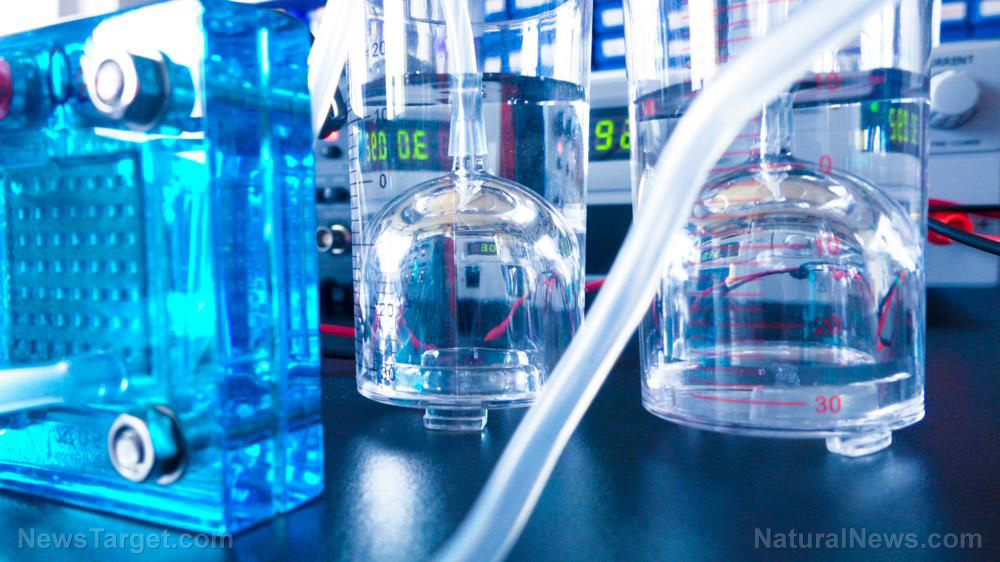Plant-based ROADS? Iowa researchers to pave roads using soybeans and recycled asphalt
08/12/2022 / By Arsenio Toledo

Researchers at Iowa State University (ISU) who accidentally discovered soy-based asphalt technology will be making this groundbreaking discovery nationally available for commercial use by next year.
The ISU researchers have been testing the product, known as the “Invigorate Rejuvenator,” for roughly a decade. They recently launched SoyLei Innovations, from where they are developing the rejuvenator – a compound made of soybean oil mixed with recycled asphalt. (Related: Streets of the future could be made from tire waste and organic wax.)
The compound changes the molecules in the reused asphalt, triggering chemical reactions that restore the balance in the composition of the asphalt and makes it even more durable.
Erich Cochran, a chemical and biological engineering professor at ISU, claims that Invigorate Rejuvenator can reduce paving costs by as much as 80 percent compared to projects that use new materials. Rural road projects that do not have large budgets could benefit greatly from this technology.
Cochran added that an acre of pavement will use thousands of pounds of soybean oil, and the technology works best in lower-traffic projects like recreational trails, driveways and parking lots.
Soy-based road paving to be tested in Iowa with federal backing
Republican Iowa Rep. Ashley Hinson has lodged a federal spending request for $4 million to help Clayton and Fayette counties in northwestern Iowa re-pave some of their roads with asphalt made of Invigorate Rejuvenator’s soybean byproduct.
Hinson, a member of the House Appropriations Committee, called Invigorate Rejuvenator an “innovating material,” and the spending request has been advanced by the committee and the full House of Representatives and now awaits a vote in the Senate.
Rafe Koopman, an engineer working for Clayton County, said the proposed route for the project includes over 12 miles of roads in the county.
“It’s kind of an exciting thing to be able to use projects we need done here as the test of a new material,” he said. “We’ve been working to get our roads prepped so it would be easy for the contractor to come in and do the final stage of the project, which would be the asphalt resurfacing.”
The project in Clayton County is currently ongoing, but since the Senate has not yet approved the funds, the county government has only been able to approve work on patching these roads and some culvert extensions. If Hinson’s request is approved, Koopman said the county could begin work in the summer of 2024.
Clayton County is partnering with ISU for this project. Cochran, who is leading the ISU side of the partnership, said the material is the result of over 12 years of research and experimentation.
Cochran and the ISU worked with the Iowa Department of Transportation to identify counties in Hinson’s district that had the type of roads and repair needs that would qualify them for federal funding.
“This is a combination of how to showcase the technology, but also put it into practice on rural Iowa roads, which are often overlooked or don’t receive enough resources to keep up to date,” said Cochran.
In an interview with the Telegraph Herald, Cochran reiterated how the soy-based polymer could replace petroleum-based polymers, making it more sustainable.
He added that future large demand for soy-based recycled asphalt could provide another market for the soybean crops of many Iowa farmers, which are expected to become less profitable in the coming years, as the automobile industry moves more toward producing electric cars.
“It’s important to have a broad portfolio of end uses for this crop,” said Cochran. “Right now, the [soybean] oil is very highly sought after for its fuel value, but there are a lot of industrial uses as well. No matter how much is produced in a given year, being able to satisfy the food value and industrial demand is important.”
Learn more about scientific discoveries and breakthroughs at Breakthrough.news.
Watch this episode of “The American Journal” as host Harrison Smith talks about how America’s critical infrastructure is collapsing.
This video is from the InfoWars channel on Brighteon.com.
More related stories:
China to build “solar roadways” with fully transparent concrete covering solar cells.
Highway department in England is using SUNFLOWER OIL to “self heal” potholes.
Futuristic roads now mixing recycled plastic with asphalt making them last 10 times longer.
Substance used to seal asphalt puts children at greater risk of cancer.
Sources include:
Submit a correction >>
Tagged Under:
asphalt, breakthrough, crops, discoveries, future science, future tech, highways, infrastructure, innovation, invention, iowa, pavement, recycled asphalt, research, reused asphalt, road-paving, Soybeans
This article may contain statements that reflect the opinion of the author
RECENT NEWS & ARTICLES
COPYRIGHT © 2018 BREAKTHROUGH.NEWS
All content posted on this site is protected under Free Speech. Breakthrough.news is not responsible for content written by contributing authors. The information on this site is provided for educational and entertainment purposes only. It is not intended as a substitute for professional advice of any kind. Breakthrough.news assumes no responsibility for the use or misuse of this material. All trademarks, registered trademarks and service marks mentioned on this site are the property of their respective owners.




















